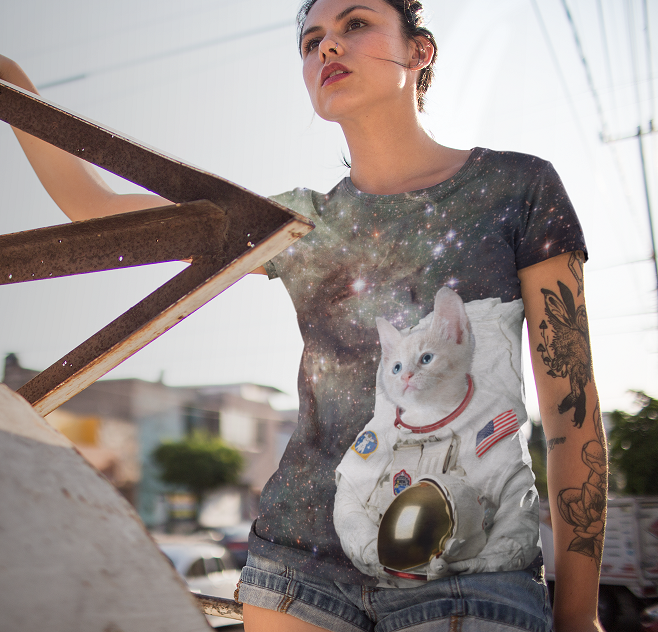The Internet is largely fueled by a handful things. Free adult content, social media political arguments, embedded ads, Star Wars rumors, and viral cat-related content. When it comes to that last one, the majority of cat memes and videos are predicated on one, abiding principle — cats are, generally Jerky McJerkJerks.
Except, what if I told you that new science is emerging that shows a possibility that we humans play a big role in bringing out feline fickleness and cats’ cattiness? Because you know I’m going to; that’s kinda what we do here, isn’t it?
As reported in The Washington Post, a new study from a university in Oregon seems to show that — at least when they’re very young — cats want to be with and do stuff with us.
But it is not the case that “cats skew toward independency [sic],” in the words of a new study on cat social behavior. In fact, researchers at Oregon State University found, many pet and shelter cats are pretty eager to interact with humans — particularly people who seek out kitty caresses.
Get our all-over print Catstronaut shirt, only available in our store!
In fact, the study’s author suggests that cats simply want to be with the humans who want to be with them.
The 23 shelter cats in the study, whose stays at the Heartland Humane Society in Corvallis, Ore., ranged from three to 455 days, spent more time than pet cats interacting with the inattentive person, which Vitale said could reflect that those felines needed attention or that their living situation conditioned them to unfamiliar people.
You’re a jerk
Essentially, if you’re anti-social and don’t show any interest in them, cats may pick up on that and ignore you. So you have to ask yourself who is being more aloof — you or your kitty?
“In both groups, we found [cats] spent significantly more time with people who were paying attention to them than people who were ignoring them,” said Kristyn R. Vitale, a postdoctoral scholar in animal behavior and the lead author of the paper, which was published in the journal Behavioral Processes.
You may also enjoy reading: Cat owners are more likely to be into bondage and BDSM than others
Maybe it’s the reinforcement of certain stereotypes or personalities of cat meme culture, Vitale suggests, that makes results like hers seem so surprising. Vitale has done research in the past that shows cats will choose interaction with humans over food or toys.
That might be, the study says, “due in part to a common misconception that cats are not a social species” — the meme fodder.
We’ve all been around enough grown cats to know that their pricklish, standoffish, anti-social behaviors aren’t made up. This study suggests that those behaviors aren’t related to how social a cat will be or wants to be with its owner. Rather, as one cat expert believes, it shows that cats pick up on the vibe we throw down and essentially go with it.
“It’s a cool study, and it does show that when we’re attentive to cats, they are interested,” said Mikel Delgado, a postdoctoral fellow who studies cat behavior at the University of California at Davis’s School of Veterinary Medicine.
Interestingly, Delgado thinks we mistake what we see as cat indifference as something much different; a desire to be free to leave or stay, depending on what they want.
“Even in the attentive phase, the cat had a lot of control, and that’s really what we think they like — the ability to leave,” Delgado said. “It’s not that they’re aloof. It’s just that they want choice.”
As with any new study, its results will be treated with some healthy skepticism, especially because the study of social behaviors of cats is still an emerging field in general. Another expert in cats told The Post a cat’s familiarity with its environment, for instance, could alter their behaviors.
John Bradshaw, a University of Bristol biologist who has long studied cat behavior, cautioned against reading much into the differences between the two groups, because cats are territorial, and only the pets were tested in familiar surroundings. “Cats behave quite differently depending on whether they know the place they’re in,” Bradshaw said.
It would certainly seem to make at least some sense though, that cats would be attuned to our emotional state and try to at least fit in with it. Anyone who has owned a cat knows that they are social creatures at least to some extent because they depend on you for their feeding and care, but the question studies like this one and others will continue to refine just how much impact we have on our cats.
One thing seems really certain though: cat memes will never die.
Writer/comedian James Schlarmann is the founder of The Political Garbage Chute and his work has been featured on The Huffington Post. You can follow James on Facebook and Instagram, but not Twitter because he has a potty mouth.

